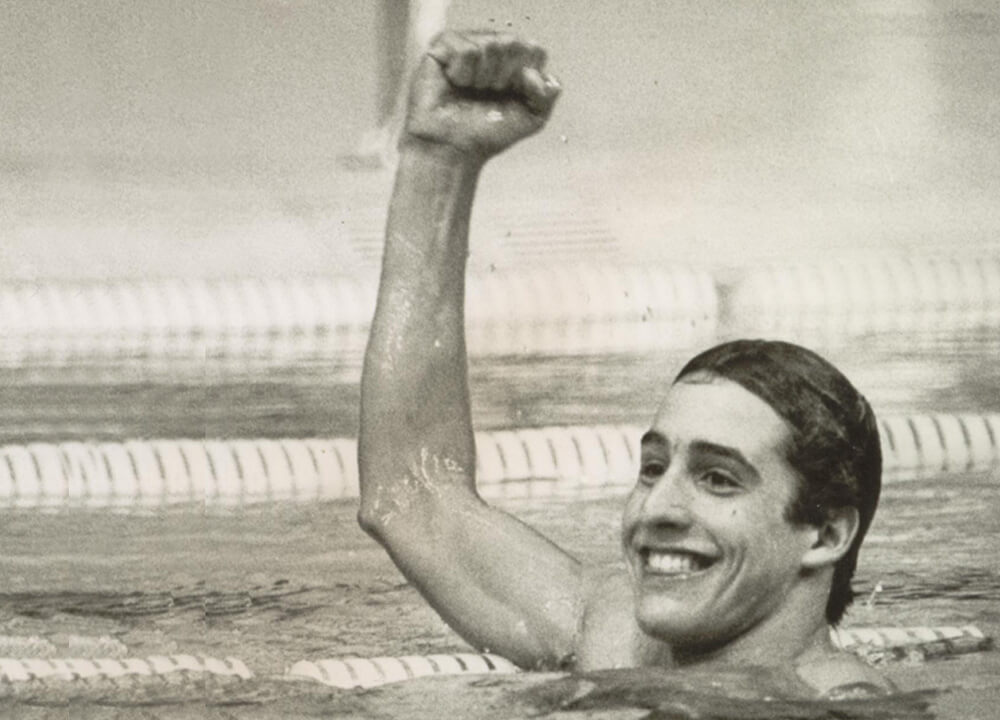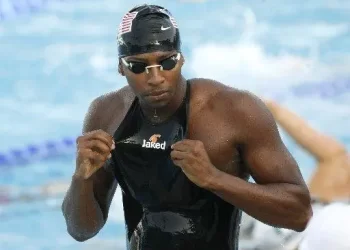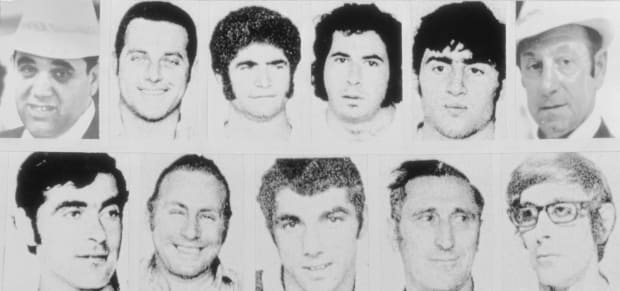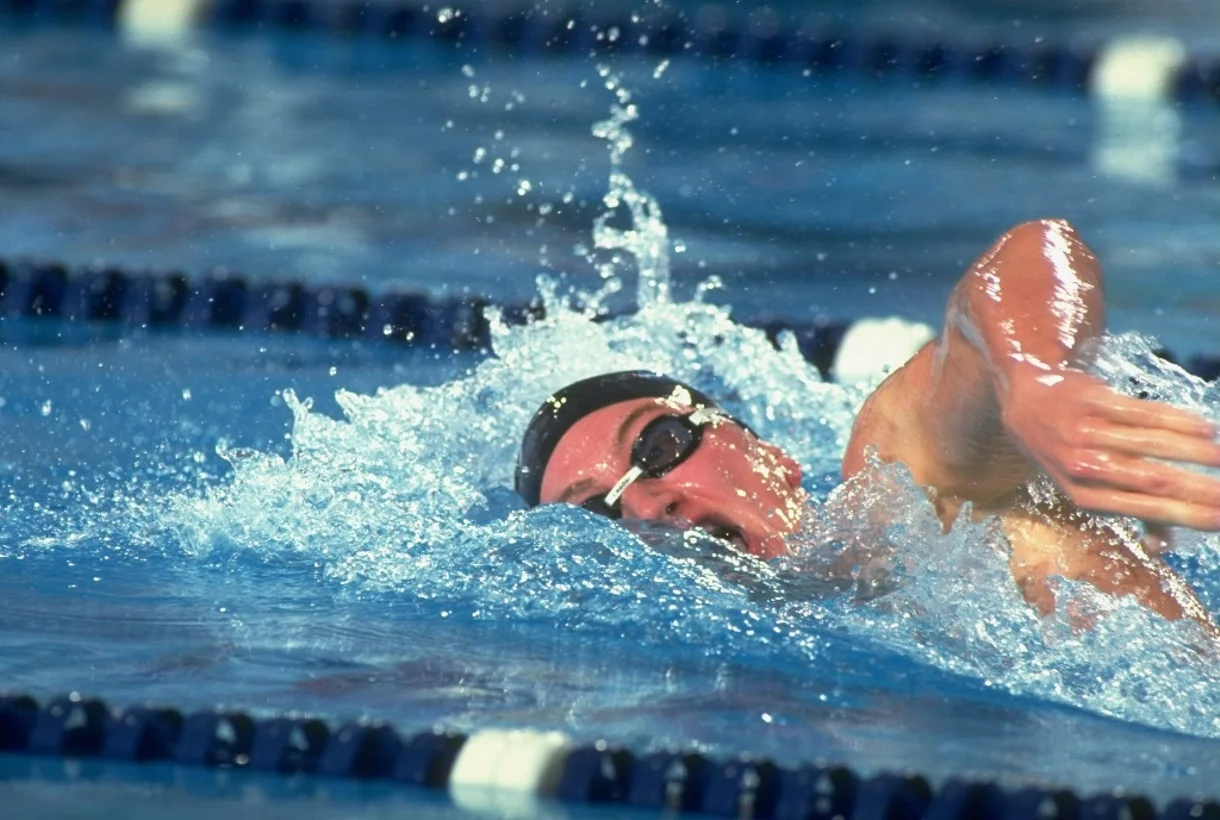By: Zachary Draves
Imagine reaching the mountain top and then being pushed right off it. Years of hard work and sacrifice to attain the ultimate goal of being a world class athlete and feel as though that investment was wasted. But after years of soul searching you capture what gave you meaning and translate that into being a positive vessel for others.
That captures that journey of 1972 Olympic swimmer Rick DeMont.
Fifty years ago, the then 16 year old was part of one of the most decorated US swimming teams in Olympic history, which included none other than Mark Spitz who won a then record seven gold medals. For a young Rick to be surrounded by greats like that, it was as good it gets.
“It was awesome,” he said. “I was the youngest guy on the team. I was swimming with all of my idols. It was a wonderful mind blowing experience.”
Rick was poised to win a gold medal and doing so while battling asthma, which can further complicate an athletes’ ability, an accomplishment that was remarkable in it’s own right. He did just that in the men’s 400 meter freestyle with a time of 4:00.26. He was on top of the world and had a bright future ahead of him until the IOC got involved.
![]()
(Courtesy: Bay Area Sports Hall of Fame)
Shortly after the race, the IOC stripped him of his gold medal after testing positive for traces of ephedrine in a post race urinalysis. Ephedrine, a central nervous system stimulant aimed at lowering blood pressure, was then a banned substance which was contained in his asthma medication Marax. He had disclosed his usage of the medication on the medical disclosure forms that were sent to the US Olympic Committee who then didn’t notify the IOC. To make matters worse, Rick was prevented from competing in future events in Munich including the 1,500-meter freestyle in which he held the then world record.

(Courtesy: SAL J VEDER, AP Photo)
“At that point, the world came crashing down,” said DeMont. “I was in a state of disbelief and anger. Right away it went from the most amazing experience to something awful.”
In the years afterward, Rick went through a debilitating period of anger, bitterness, and depression. He said it was being “tattooed on the forehead” for all to see. He had lost his love for the sport of swimming and the Olympics and was looking to recapture a sense of purpose in his life.
For ten years, Rick took up coaching kids in swimming and that started to begin his healing process. Eventually he would go onto to become a decorated swim coach at his alma mater, the University of Arizona, where he was a four time All American. In his thirty year tenure, he would go on to coach 22 US Swimming and NCAA individual champions including a great number of champion relay teams. As a result, he was inducted into the University of Arizona Athletic Hall of Fame in 1999. He was also an assistant coach to the South African men’s team at the 2000, 2004, and 2008 Olympics.
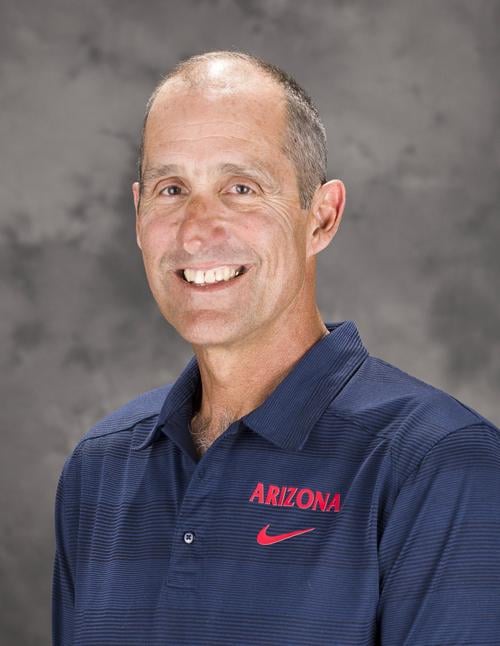
(Courtesy: Arizona Athletics)
His accolades don’t stop there. In the 1980’s he was inducted into the World Swimming Hall of Fame and in 2008 he was inducted into the Bay Area Sports Hall of Fame. In addition to coaching, he is an avid and skilled painter specializing in watercolor and oil. His work has been featured in various galleries. Painting gave him an outlet to channel to his emotions out of the water.
All the while, he had started to come to terms with the Munich games.
To this day, there is an ongoing effort to get Rick the gold medal that was rightfully his. In 2001, the US Olympic Committee had acknowledged that it had mishandled his medical information and called on the IOC to give him his medal back.
The IOC has not followed suit and only time will tell if they ever do.
Nevertheless, Rick DeMont has found himself again and has an overall uplifting outlook on his life.
“My life, knock on wood, has been really blessed,” he said. “I feel like a really blessed person.”
Whatever the IOC says, it doesn’t change the fact that Rick is now and forever an Olympian who embodies the true essence of that role. He is talented, passionate, determined, and above all a testament to resiliency.


 NFL
NFL